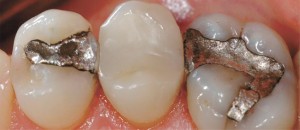By Bruce R. Dooley, M.D. –
 Have you ever experienced lapses in memory, unexplainable fatigue or emotional mood swings, including fear, anxiety, loss of confidence or even rage? Do you know anybody with cancer or an autoimmune disease such as M.S., Parkinson’s, or Lupus? Do you know a child with a learning disability such as Attention Deficit Syndrome or someone with a heart complaint, hypertension or diabetes?
Have you ever experienced lapses in memory, unexplainable fatigue or emotional mood swings, including fear, anxiety, loss of confidence or even rage? Do you know anybody with cancer or an autoimmune disease such as M.S., Parkinson’s, or Lupus? Do you know a child with a learning disability such as Attention Deficit Syndrome or someone with a heart complaint, hypertension or diabetes?
Most people are surprised to hear that mercury is a proven cause of these and many other adverse health conditions, including chronic fatigue, depression, infertility, cardiac disease and many neurological conditions. They are shocked to learn that they most likely have this toxic chemical in their body right now.
Millions of people are exposed to mercury daily through contaminated fish, pollution from coal-fired electric plants, everyday products that contain mercury such as thermometers, fluorescent light bulbs and gauges, as well as certain childhood and adult vaccines.
But the single greatest source is so-called “silver” dental fillings, or amalgams, which actually contain 50% mercury. It has been proven that once in the human mouth, these mercury-laden dental amalgams “outgas” mercury vapor that is then inhaled and absorbed or swallowed. Animal and human studies have confirmed the presence of mercury from amalgams in tissue, blood, amniotic fluid and urine. Unfortunately, most conventional dentists continue to use dental amalgams containing mercury, while it has been banned in many European countries for decades.
Mercury contamination is a worldwide problem, and has significant impact on human health. The term micromercurialism refers to the effects on the body when it’s assaulted by small concentrations of mercury over time. Toxic heavy metals slowly accumulate and can have devastating effects on the liver, kidneys, brain and bone. The symptoms of heavy metal toxicity often are mistaken for pre-existing conditions or even aging, and in many cases don’t appear until deep cellular damage has been done.
The World Health Organization has said that there is no known low limit of mercury in the body that is not toxic. That means that even tiny amounts of mercury in body tissues, measured in parts per millions perhaps, can cause health damage over time if not corrected.
A few of the symptoms associated with mercury toxicity include:
• Emotions: Rage, anger, depression, anxiety
• Brain: Dementia, memory loss, “brain fog”
• Heart: Arrhythmia, shortness of breath, angina
• Nervous System: Numbness, tremors, MS, ALS, hearing/vision problems
• Immune problems: Recurring infections, rashes, allergies/asthma, autoimmune diseases
• Hormones & Sexuality: Low thyroid function, low libido, poor erections
• Reproductive System: Infertility, impotency, birth defects
• General Health: Fatigue, cold extremities, headaches, unexplainable weight gain
In adults, toxic effects from regularly eating fish containing large amounts of mercury include decreased vision, mental fog or poor memory, and many of the other symptoms listed above. Heavy metals and other toxins have been linked to many human diseases, but determining exactly how they damage the body remains a mystery in many cases. Research published in the June 2007 International Journal of Toxicology and supported by the National Institutes of Health suggests mercury’s link to heart disease can be traced to activation of a relatively obscure, misunderstood enzyme, which triggers a process leading to plaque buildup in blood vessel walls.
Mercury significantly affects the developing nervous systems of newborns in that it crosses the placenta and has been shown to cause attention deficit disorders, mental retardation, cerebral palsy, blindness, seizures, and an inability to speak, as well as subtle motor, attention, language and memory problems. For that reason it is strongly recommended that women contemplating pregnancy test themselves for mercury at least one year before becoming pregnant in order to do a detoxification program if they show high mercury levels.
Despite the dangers of mercury toxicity, symptoms are not specific or easily detected. The most important first step is for an individual to learn their mercury level. Because mercury is bound in the body tissues, it is not free-floating in bodily fluids and so can’t accurately be measured by standard blood, urine or hair analyses. Experts in the field of heavy metal toxicology agree that the most accurate test is called the Provoked Urine Challenge, which uses a safe oral compound to provoke, or push, mercury from the tissues, then binds tightly to it so it can be measured in the urine as it exits the body. The test is a simple and affordable 2-hour urine collection. If an elevated mercury level is detected, oral treatment is now available, instead of the earlier expensive IV treatment system.
Millions of people have poor energy, chronic diseases and mental and emotional problems and are unknowingly burdened by mercury. Once people begin to understand what mercury can do—or already has done—to damage their health, they would be wise to pursue simple testing and treatment.
Advanced Natural Medicine | (561) 744-2724
Check Also
RejuvaNATION MedSpa: Elevating Men’s Health to New Heights
Embark on a Journey to Revitalize Your Vitality Rediscover the joy of a spontaneous sex …
 South Florida Health and Wellness Magazine Health and Wellness Articles
South Florida Health and Wellness Magazine Health and Wellness Articles




